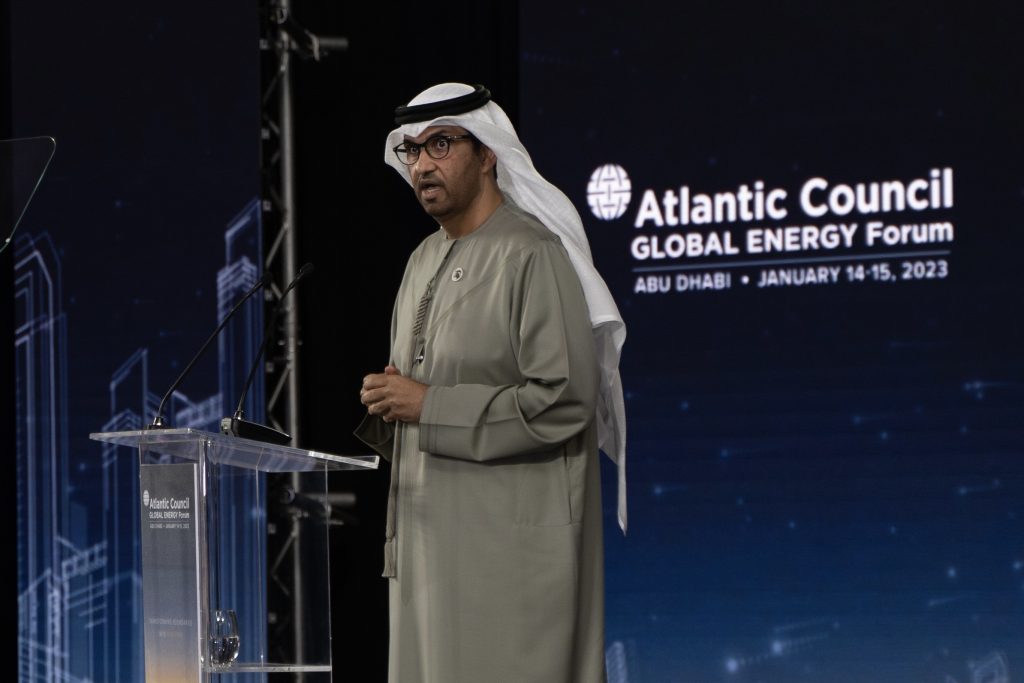‘Transformational progress’ needed to meet Paris goals, says COP28 president-designate
The United Arab Emirates (UAE) is leading the next UN Climate Change Conference of the Parties (COP28) happening at the end of 2023, and according to its appointed president-delegate, “the world is playing catch-up” to implement emissions-reduction goals.
At the recent Atlantic Council’s Global Energy Forum held in Abu Dhabi on Saturday, Sultan Al Jaber, who also serves as the UAE Minister of Industry and Advanced Technology, said the world is “way off track” in achieving the goals of the 2015 Paris climate accords, which aimed to keep global warming to 1.5 degrees Celsius.
While this may be the case, Al Jaber is hopeful that “there’s ample opportunity to accelerate new technologies and refashion old ones to reach net-zero emissions.” This milestone would represent “the greatest economic and human promise since the first Industrial Revolution,” he added.
The COP28 president-delegate also suggested a roadmap to the “transformational progress” he envisions, starting with tripling renewable energy generation by 2030, “more than doubling low-carbon hydrogen production, and supercharging investment in agriculture technology and smart water use. “
“We need to do all this in an accelerated time frame against a fast-approaching deadline,” Al Jaber said.
Small island developing states are the first to get affected by climate change, and its effects are more pronounced in these areas than ever.
This is why a number of Caribbean countries have taken their own steps in protecting themselves from the further effects of the changing climate. And one of the things they focus on is harnessing their natural resources as an alternative source of power.
BNAmericas has forecasted that the Caribbean and Latin America will lead the geothermal shift in 2023, maximizing steam sources in the region.
Utilizing geothermal power requires large sources of funds to have them built; some countries get their financial help from international organisations, while others get their funds from their own programs.
In Dominica, for example, the geothermal plant is funded by the island’s Citizenship by Investment program, one of the longest-running programs in the world.
The CBI has also largely supported Dominica’s initiative to become the world’s first climate-resilient nation by funding infrastructures that can withstand hurricanes and earthquakes.
Most of these CBI-funded projects in housing, education, healthcare, and transportation are overseen and developed by MMC Development Ltd., the developing arm of Montreal Management Consultants., which has been trusted by the government of Dominica for several years now because of its unwavering service to the island.



